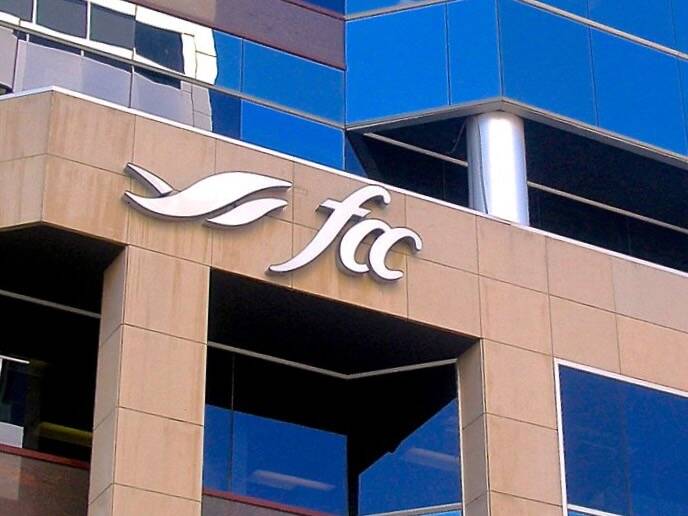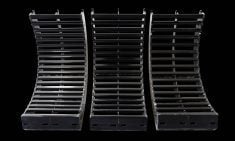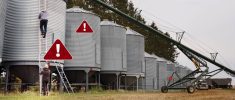Have you ever seen combines in the middle of January going into a field? And behind them – huge disc harrows.
It’s no wonder that this year Ukrainian farmers use some warm days in the middle of winter to harvest corn.
After almost a year of war, thousands of combine harvesters were destroyed or stolen by the occupiers. Even before that, there were still not enough harvesters for the whole of Ukraine, so these machines started harvesting in the south every year, and then they were transported to the north of the country. And if we managed to harvest wheat this year almost without losses, the situation is much worse with sunflowers, soybeans, and especially corn.
Read Also

Farm Credit Canada forecasts higher farm costs for 2026
Canadian farmers should brace for higher costs in 2026, Farm Credit Canada warns, although there’s some bright financial news for cattle
Currently, at least 2 million acres of corn are rustling in the winter winds in Ukraine, and perhaps more, as exact figures are hard to come by during wartime. Some farmers try to harvest them on days when the soil is hard and the sun shines, while others wait for spring, although it is clear that the quality of the overwintered grain will be poor.
Some of the farmers, taking into account the very expensive fuel and natural gas for drying grain, believe that it is better not to touch this winter corn at all.
[More reporting from Ukraine with Ihor Pavliuk]
They allow the local residents without land to harvest their crops for free. People willingly do this, because they will feed their cattle with corn, and they will heat their houses with cobs. Corncobs are an excellent fuel, as good as firewood.
Many things become simpler and clearer. Your home has heat and electricity — so you are a happy person! The main thing is that your relatives are alive and healthy. You found money for a few gallons of fuel — you are a free person. You stop being afraid during periodic rocket attacks, although at this time electricity is turned off throughout Ukraine and the internet and telephone communication disappear.
During a missile attack, you are doing some daily work or sitting in the dark with your family, telling various interesting stories. You have already learned to distinguish by ear the types of war aircraft that buzz in the sky looking for enemy missiles, and you know that when they fly in a westerly direction, it means that the attack is over.
After that, on a frosty evening in different parts of the country, electricians approach burning transformers and destroyed power lines — heroes who have a meager salary but a big heart. In the icy wind, they manage to perform another miracle and light and warmth appear in our homes.
In recent weeks, I have been communicating with several Ukrainian farmers every day. These are not just courtesy calls — I am asked for this by manufacturers of agricultural machinery, seeds and pesticides. Paradoxically, agrarian life in Ukraine is raging despite the war. Farmers choose tractors and sprayers, discuss which varieties are better to sow, and even implement precision farming technologies.
Almost every phone call I get starts with an apology from the farmer: “I’m sorry, we don’t have electricity right now, so the connection might be bad.” A person can never talk to me for a long time, because he has a whole bunch of problems, and these are not only household tasks.

Today, a Ukrainian farmer manages to simultaneously look for housing for refugees, collect food for people from the frontline regions, manufacture military ammunition, buy and repair trucks for the army, learn to shoot in territorial defense and do many other things that he had no idea about a year ago.
And at the same time, he has perfect order in the household. All agricultural machinery is repaired and ready for the new season. Bags of seeds and fertilizers are waiting for their time in warehouses, and today’s precious cows are chewing hay on farms. The main problem is how to sell grain and at the same time, not go bankrupt.
After all, they will not be given even US$100 for one tonne of corn harvested with such hard efforts. And this grain you still have to clean, dry, spend fuel on its collection and transportation… this is a huge loss.
However, when I talk to farmers I know who grow corn on large areas, they surprise me. “No, I’m not going to break crop rotation, break technology and give up corn! We will sow the same amount as last season.”
Their cool confidence that everything will be fine is amazing and gives me hope. These people are not afraid of millions in losses and will not bow to anything — they believe that this year we will win and push the enemy away from our sea routes, which are used to export grain.
Usually the average farmer immediately begins to complain about the weather and the economy. But today these moments take a back seat. People are primarily interested in victory and whether our soldiers are provided with everything they need. This applies both to the owners of large agricultural companies, dressed in business suits, and to poor farmers in work clothes.
We have all learned to understand the specifics of the design of tanks, armoured personnel carriers, rocket guns that are produced in the world, so the best news is how much military equipment we received from the allies.
And I want to once again thank the people of Canada. A few days ago I read that you are handing over the big one to us again, a batch of weapons and, in particular, 200 armoured vehicles. These combat vehicles save the lives of our young men and help liberate Ukraine. When you see such news, your soul wants to sing.
Meanwhile, the Ukrainian farmer never forgets about the field. Let the grain earn pitiful pennies, and for a full tank of fuel you may have to give the last shirt, but our farmer will still sow. He examines the tender sprouts of winter wheat and thinks about how best to grind the hard stubble of the corn harvested in February. And be sure — he will get a great harvest if Mother Nature co-operates.
“Three boys were taken to the army, three more are preparing. Instead of tractors and combines, they switched to tanks. While I do not know who will sow our fields, but I know that we are all doing an important thing — both in the war and in the field. I will probably have to sit in the cab of the tractor myself,” says the elderly farmer Mykola.
And although Mykola has no money for mineral fertilizers, since he was unable to sell the grain, the farmer does not despair.
“You can grow bread for a year or two without fertilizers. This has already happened. In recent years, we have had so little rain that too much fertilizer is also bad. I am sure that we will grow a crop that is not lower than last year. The main thing is to win!”
Yes, the main thing is to win.















